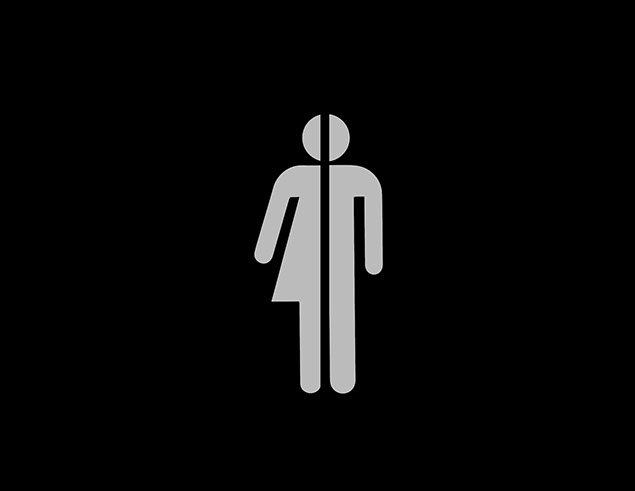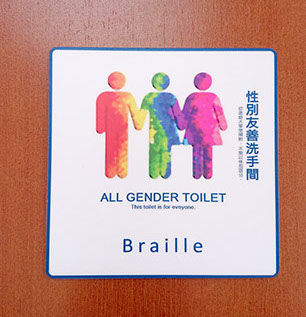What happens when you challenge people on their ideas about gender? Students in the Common Core course ‘Sexuality and Gender: Diversity and Society’, taught by Professor Timothy O’Leary and Dr Brenda Alegre of the School of Humanities, tested that out last year by zoning in on the most obvious place of gender division – the restrooms.
Restrooms on four floors of the Centennial Campus were declared ‘gender neutral’ for an afternoon, the University community was informed in advance by email, and the students spent the afternoon standing outside the restrooms suggesting people try the toilet usually assigned to the opposite sex.
It was a simple concept and a number of people did as the students suggested. But there were also complaints and negative feedback (as there was when several ‘all-gender’ toilets were opened in the offices of the Centre of Development and Resources for Students last spring), as well as suggestions such as ensuring hidden cameras were not installed in the women’s toilets.
“What was interesting for us is that there’s so much concern tied up with toilets,” Professor O’Leary said. “We wanted our students to look at this with some kind of wonder about why there is this tension around a very simple bodily function that we all do.”

![]() We are not just trying to get students to recognise women’s issues, but also to show you can’t really understand women’s issues without understanding men’s issues.
We are not just trying to get students to recognise women’s issues, but also to show you can’t really understand women’s issues without understanding men’s issues. ![]()
Professor Karen Joe Laidler
Popular questions explored
Common Core courses are a good forum for these discussions because they include students from different disciplines, and gender-focussed courses are all very popular. Professor Karen Joe Laidler of Sociology co-teaches two such courses – ‘Body, Beauty, Fashion’, which looks at how beauty and body image for both men and women are shaped by social expectations, mass media, and globalisation and westernisation, and ‘Girl Power in a Man’s World’, which covers the different aims of girl empowerment in developed and developing countries and the role of men and consequences for them.
“We are not just trying to get students to recognise women’s issues, but also to show you can’t really understand women’s issues without understanding men’s issues,” she said.
Students are also exposed to gender themes in discipline-specific courses in the Arts, Business, Education, Law, Medicine, Science, and Social Sciences faculties. “Many of us hope at some point the University can realise a programme on gender studies. It would not take long to coordinate and organise these courses together,” Professor Laidler said.
Meanwhile, Professor O’Leary has been asked by the University to write a guide for students on the use of non-discriminatory language when referring to people of different gender, disabilities and ethnicities. “There are some things that the University should be saying are not acceptable,” he said. “There’s no doubt these guidelines and policies are aimed at changing the way people write and think. That’s what a university is about. We shouldn’t be shy about doing that.”

HE, SHE, OTHER
Students are learning to question the stereotypes around gender and diversity, and the limitations they impose.
Next
Back
The first ‘all-gender’ toilet at HKU was set up in the Main Building near to the Centre of Development and Resources for Students (CEDARS).




